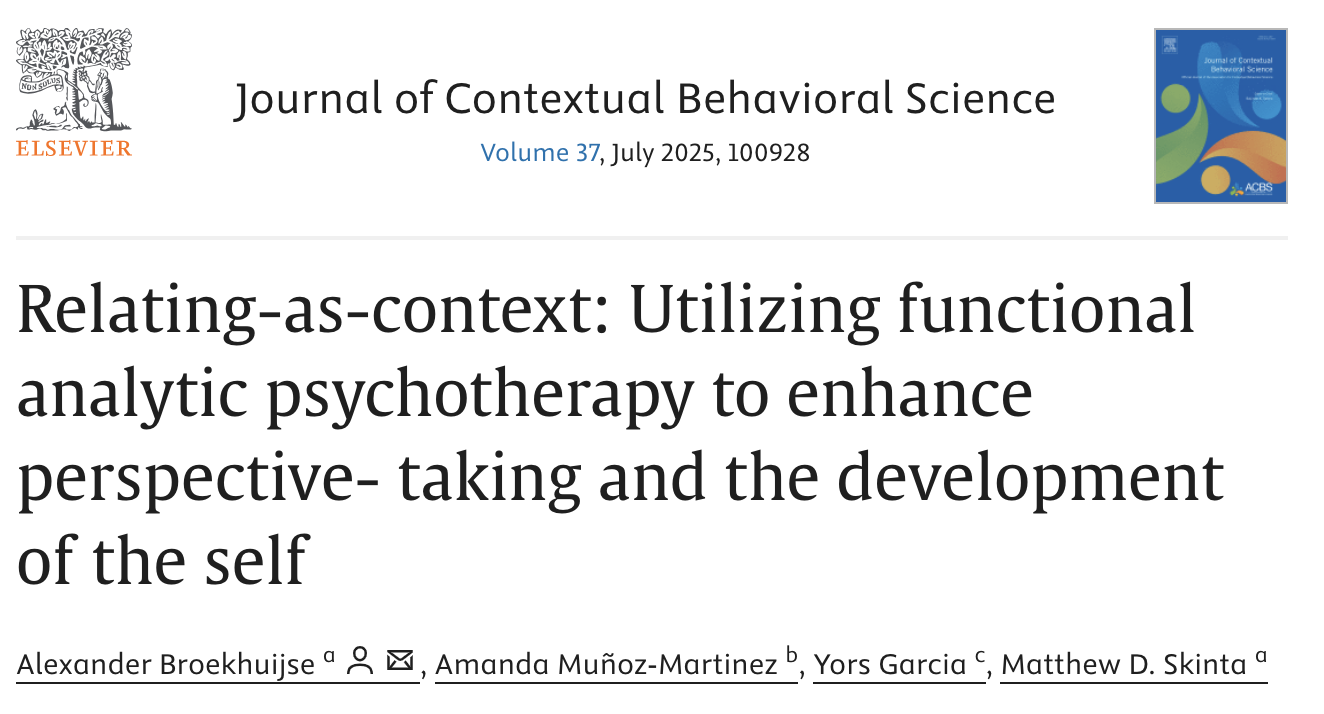Journal of Contextual Behavioral Science (JCBS)
Volume 37, July 2025
Authors
Alexander Broekhuijse, Amanda Muñoz-Martinez, Yors Garcia, & Matthew D. Skinta
Key Findings
- Functional Analytic Psychotherapy (FAP) may address problems of the self by attending to contingencies that improve private control of the self.
- FAP aligns with existing Relational Frame Theory (RFT) interventions through its emphasis on perspective-taking and relational responding.
- The Logical FAP Interaction is better described and elaborated upon through the consideration of deictic frames.
- FAP may function as adjunctive intervention for problems of the self associated with a variety of symptom presentations.
Abstract
Deficits in self-related processes, including emotion recognition, perspective-taking, and individuation, are increasingly recognized as transdiagnostic mechanisms underlying a range of psychological disorders. From a behavioral perspective, the self is not a fixed entity but a dynamic repertoire of referential verbal behaviors that emerge and evolve through social-verbal interactions—a process conceptualized as selfing. Despite its clinical significance, interventions specifically targeting selfing deficits remain underdeveloped. Functional Analytic Psychotherapy (FAP) provides a compelling framework for addressing these difficulties by leveraging real-time interpersonal interactions to observe, shape, and reinforce adaptive relational behaviors. This paper conceptualizes the logical FAP interaction as a structured intervention that includes relational cues that transform different relational cues (e.g., deictic, coordination), leading to a shift in derived relational responding to promote selfing behaviors, emotional awareness, and perspective-taking. By integrating Relational Frame Theory (RFT) principles into the analysis of the FAP logical interaction, this approach advances the theoretical and clinical application of FAP for self-development and interpersonal functioning. A clinical case vignette illustrates how this method fosters a flexible and adaptive self-concept, reinforcing its potential for enhancing relational flexibility and well-being.
